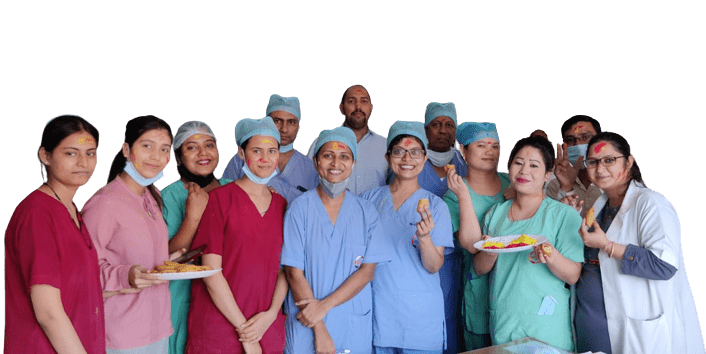Need Help?
We are here to help.
We care for each one who come to us with hope in their hearts.

When one of your ovaries produces fewer eggs that are more difficult to fertilize, this is known as diminishing ovarian reserve. This has an impact on your overall fertility and ability to conceive.
Infertility is a disorder that affects a woman’s ability to conceive and give birth to a child somehow. This is commonly identified after a year of attempting to conceive. One-third of infertility cases are caused by male issues, one-third by female problems, and one-third by a mix of factors or unknown causes.
When one of your ovaries produces fewer eggs that are more difficult to fertilize, this is known as diminishing ovarian reserve (DOR). This has an impact on your overall fertility and ability to conceive. This disorder affects 10% to 30% of persons seeking therapy for infertility.
Diminished ovarian reserve is one of the many causes of female infertility. It affects women of all ages. Several women with diminished ovarian reserve see their IVF specialist have a successful pregnancy.
Yet, in many cases, the source of infertility is unknown.
These indications, however, are not always present. This is why, if you have trouble conceiving, you should see a fertility specialist.
You have a higher chance of successful therapy if you get diagnosed early. If you’re under 35 years old and have been trying to conceive for a year, you should consult a doctor. After six months, consult a doctor if you’re over 35. It’s advisable to consult your doctor immediately away if you’re over 40 and attempting to conceive.
To identify diminished ovarian reserve, a few blood tests measure follicle-stimulating hormone (FSH) , estradiol and anti-Müllerian hormone (AMH). These hormones are essential for menstruation and reproduction.
Even if your ovarian reserve is low, you may be able to conceive. According to one research, 33% of women with this illness conceived following treatment with their eggs. However, the study shows that an early diagnosis is vital since it increases the chances of conceiving.
Supplements like dehydroepiandrosterone (DHEA), a moderate androgen, are the most often used reduced ovarian reserves therapies. Your body produces DHEA, but its levels decrease as you get older. As a result, taking DHEA supplements can help you conceive.
There are limited options for conceiving other than DHEA pills. Your healthy eggs can be preserved for future use if you are quickly diagnosed with decreased ovarian reserve. Your doctor might even recommend that you start IVF right away.
A donor’s eggs could work. The eggs will be fertilized and put in your uterus through IVF. Since your therapy depends on your situation, talking to a fertility specialist about your alternatives is critical.
To conclude, after learning that you have a diminished ovarian reserve, you may get discouraged. While you have the disease, you can still conceive using your own or donor eggs. Consult your fertility specialist if you suspect you have the illness or are having trouble conceiving. Timing is very critical, the early you try better would be your results. If medications are not working for about 3-6 months, it is best to go ahead with IVF. Male factor should also ne ruled out. Younger women with DOR do better than older.
https://www.ndtv.com/health/diminished-ovarian-reserve-a-leading-cause-of-female-infertility-2854039
We care for each one who come to us with hope in their hearts.

Disclaimer – Dr Kaberi is not associated with any Hosptial/Clinic other than “Advanced Fertility and Gyne Center (AFGC)”. AFGC has only four centers at present 1. “Lajpat Nagar” 2. “CR Park Delhi” 3. “Noida” 4. “Gurgaon“.